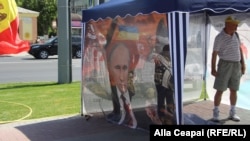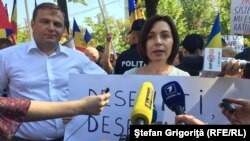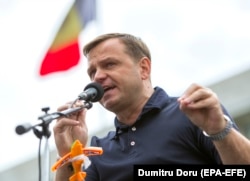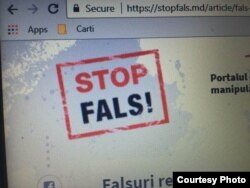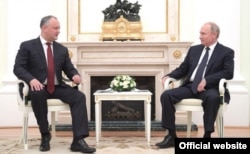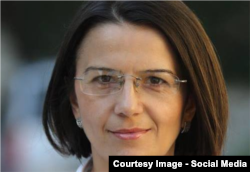Millions of Moldovans were glued to their TV screens watching with increasing panic the news from neighboring European countries about a “massive” wave of Syrian refugees. The horrifying reports were coming from Russian TV retranslated by the Moldovan TV channels – claims their neighbors were drowning in crime and terrorism imported with the Syrian refugees, who fled the war in their own country
Moldova is a small country located in Central Europe, in between two rivers, with Ukraine on the east and Romania on the west. It is the poorest country in the region, and among the most corrupt – and continues to face Russian dominance more than a quarter century after the Soviet Union collapsed. The dominance extends to the media landscape, as we will explore here.
The “EU disaster” reports about migration continued for nearly two years, reaching their height during the 2016 presidential elections in Moldova, when the fear of Syrian refugees transformed from the neighbor’s problem into every Moldovan’s terror.
One news report screamed of an "Invasion of 30,000 Syrians in Moldova," if the pro-European candidate were to win the election.
"The pro-European candidate for the position of Moldovan president Maia Sandu, had an agreement with German Chancellor Angela Merkel to receive 30,000 Syrian immigrants to Moldova if she wins the presidential elections,” reported a news portal guralumii.md, adding that Sandu “accepted the German Chancellor's proposal." Sandu denied any such talks or agreements ever took place.
The fears were brought back to life two years later -- in March 2018, when residents of the Moldovan capital Chisinau were electing a mayor. A TV report [presented falsely as an Al Jazeera original] stated that "Chisinau will be rented to the Arab Emirates for 50 years,” -- again, if the pro-European candidate Andrei Nastase were to win the mayor’s seat.
The report posted by Stiripespuse.com claimed that ”Andrei Nastase had an arrangement with the Sheikh of the United Arab Emirates to rent the capital of the Republic of Moldova for 50 years for modernization and, as a remuneration, Andrei Nastase had promised to build a sector in Chisinau special for the Arabs.”
The Moldovan fact-checking portal Stopfals.md debunked the fake report, revealing that the original Al Jazeera report had never mentioned Moldova or its capital, but was about relations between the UAE and Yemen.
Although both stories were proven to be fabricated news and investigative reporters revealed that both items of disinformation originated from Russia, media and social networks from Russia like Odnoklasniki.ru remain extremely popular in Moldova.
"The avalanche of fake news exists not only in Moldova, and this negative phenomenon has a long history,” said Lilia Zaharia journalist at the Association of Independent Press in Moldova. “In particular, the Russian press -- journalists affiliated with the Kremlin -- are the ones who often cover unverified and false information aimed at destabilizing the situation in our country or any other, using the weaknesses and the classic stereotypes existing in our society."
A media study and a think-tank report show the media landscape in Moldova is dominated by political elites and oligarchs, some with connections to Russia. Several of the dominant TV stations had long rebroadcast Russian programming, including news programs.
In January 2018, the Moldovan parliament, via the country’s Constitutional Court, initiated a temporary suspension of powers of the nation’s pro-Russian President Igor Dodon in order to bypass his veto against the law banning retransmission of the Russian TV and radio channels by Moldovan media. The court restored Dodon’s presidential authority immediately after the “foreign propaganda” legislation was passed into law.
Facing an increased flow of fake news, three Moldovan journalism organizations -- the Independent Press Association, the Center for Independent Journalism and the Moldovan TV Journalists Association --created a group of professionals to fight against misinformation and disinformation with support from the European Union. The result of their combined efforts, the StopFals Campaign, investigates and refutes intentionally distributed disinformation in the online environment. The fact checks and analyses are published on the StopFals.md Web site.
As part of its program, the StopFalse Campaign trained 35 journalists and media experts from most of the country's districts, including Gagauzia and Transnistria. These people then go back home and inform people about how to distinguish fake information from verifiable news and promote literacy.
The StopFals Campaign in Moldova produced “Propaganda and Counterpropaganda. Theoretical and Practical Manual"– a book that is available free online for all those interested in topics such as information security, propaganda and counterpropaganda, misinformation and manipulation through the media.
In addition, this past August, Viorica Zaharia, chairman of the Press Council, together with StopFals’s team, published a list of websites that distribute false news.
(This article written by a Moldovan journalist Elena SIRBU who was on a fellowship at the Polygraph.info, Voice of America’s fact-checking unit).




